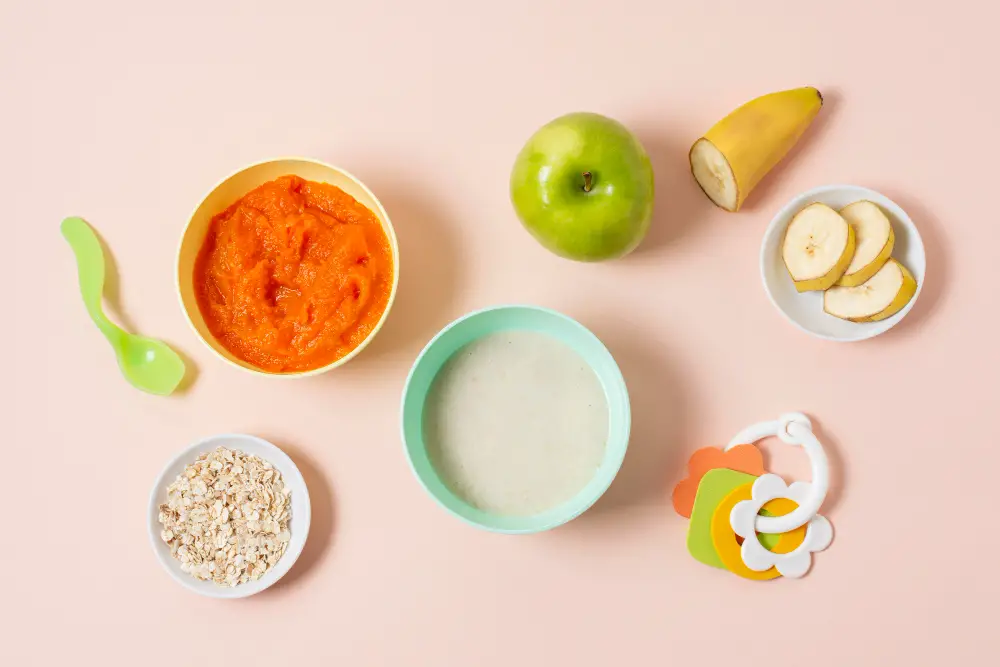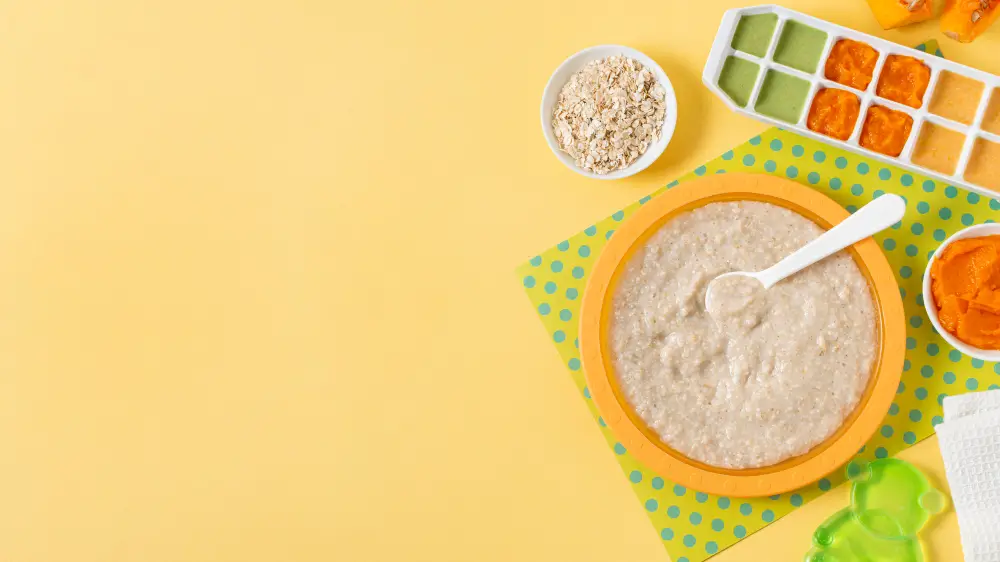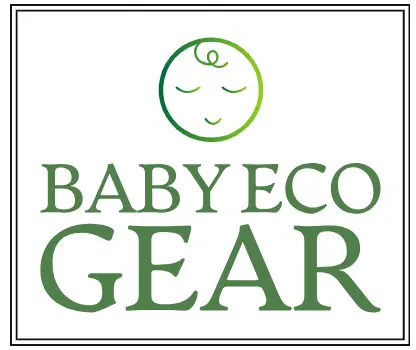Organic Baby Food: Nourishing Your Little One Naturally
The Benefits of Organic Baby Food: Providing Superior Nutritional Value
When it comes to the health and well-being of your precious little one, choosing organic baby food can make a world of difference. One of the standout advantages of organic options lies in their exceptional nutritional value. Here’s why:
1. Nutritional Value: Packed with Essential Vitamins and Minerals
Organic baby food is carefully crafted to retain the highest levels of essential vitamins and minerals, ensuring your baby receives optimal nutrition. These wholesome options offer a wide array of vital nutrients, including vitamin C, iron, calcium, and antioxidants, which are crucial for your baby’s growth and development.
By opting for organic baby food, you can rest assured that your little one is getting the best possible start in life. Studies have shown that organic produce tends to have higher nutrient content compared to conventionally grown counterparts. With organic baby food, you can provide your child with a solid nutritional foundation for a healthy future.
Additionally, organic baby food is free from artificial additives, preservatives, and genetically modified organisms (GMOs). This means you can nourish your little one without worrying about exposing them to potentially harmful substances commonly found in non-organic options.
Make a conscious choice for your baby’s nutrition and embrace the benefits of organic baby food. Give your little one the gift of pure, wholesome nourishment that promotes their growth, supports their immune system, and sets them on a path to lifelong well-being.
2. Reduced Exposure to Pesticides: Safeguarding Your Baby’s Health
One of the key advantages of choosing organic baby food is the significant reduction in pesticide exposure. Conventionally grown foods often contain traces of pesticides, which can pose risks, especially for infants with developing immune systems. Here’s why opting for organic is a wise choice:
Research has shown that organic farming methods prioritize natural pest control measures and prohibit the use of synthetic pesticides. By selecting organic baby food, you are providing your little one with a safer alternative, free from potentially harmful chemical residues. This reduced exposure to pesticides helps protect their delicate systems and promotes long-term health.
Choosing the Right Organic Baby Food: A Guide for Health-Conscious Parents

When it comes to selecting organic baby food, being well-informed is crucial. Here are essential considerations to ensure you make the best choices for your little one:
1. Reading Labels Carefully: Understanding Ingredients and Certifications
Take the time to read and understand the labels on organic baby food products. Look for specific information about the ingredients used and certifications such as USDA Organic, which ensures adherence to strict organic standards. Familiarize yourself with terms like “100% organic,” “organic,” or “made with organic ingredients” to make informed decisions.
2. Opting for Trusted Brands: Ensuring Quality and Safety
Choose organic baby food from reputable and trusted brands that prioritize transparency, quality, and safety. Look for brands with a strong track record of producing organic products and positive customer reviews. Research and recommendations from fellow parents can also guide you in selecting reliable options that align with your baby’s nutritional needs.
By following these guidelines and selecting the right organic baby food, you can provide your little one with nourishment that supports their development while minimizing exposure to harmful substances. Prioritize their health and well-being by making informed choices when it comes to organic baby food selection.
Preparing Homemade Organic Baby Food: Wholesome Delights Made with Love

There’s a special joy in preparing homemade organic baby food for your little one. By taking the DIY route, you have full control over the ingredients and can ensure the utmost quality and freshness. Here’s a guide to help you create nutritious and delicious meals:
1. Selecting Organic Ingredients: The Foundation of Nutrient-Rich Meals
When preparing homemade organic baby food, prioritize using fresh and organic ingredients. Organic fruits, vegetables, grains, and meats provide the best nutritional value while avoiding exposure to pesticides, hormones, and antibiotics. Visit local farmers’ markets or organic food stores to source high-quality ingredients for your little one’s meals.
Remember to consider your baby’s age and introduce new ingredients gradually to monitor any potential allergies or sensitivities. With a wide variety of organic options available, you can create a diverse and balanced diet that caters to your baby’s changing nutritional needs.
2. Using Safe Preparation Methods: Ensuring Hygiene and Nutrient Retention
Maintaining proper hygiene and using safe preparation methods is crucial when making homemade organic baby food. Follow these essential steps to ensure your little one’s meals are safe and nutrient-rich:
Cleanliness is key: Wash your hands thoroughly before handling ingredients and sterilize cooking utensils and equipment to minimize the risk of contamination.
Steaming and boiling: Steaming or boiling organic fruits, vegetables, and grains help retain their nutrients. This gentle cooking method softens the ingredients while preserving their natural goodness.
Blending or mashing: Depending on your baby’s age and preference, use a blender or masher to create a smooth or textured consistency. Ensure the food is adequately pureed to prevent choking hazards for younger babies.
Storage and reheating: Store homemade organic baby food in airtight containers and refrigerate or freeze them promptly. When reheating, ensure thorough heating to eliminate any potential bacteria growth, and always check the temperature before feeding your baby.
Preparing homemade organic baby food allows you to customize meals according to your little one’s taste and nutritional requirements. With careful ingredient selection and safe preparation methods, you can provide your baby with nourishing meals prepared with love and dedication. Enjoy the journey of creating wholesome delights for your growing bundle of joy!
Introducing Organic Baby Food into Your Little One’s Diet: A Journey of Flavor and Nutrition

When the time comes to introduce solid foods to your baby, incorporating organic options can lay the foundation for a healthy and nourishing diet. Here’s a step-by-step guide to help you navigate this exciting phase:
1. Starting with Single Ingredients: Gentle Introduction to New Tastes
Begin by offering your little one single-ingredient organic baby food. This approach allows you to identify any potential allergies or digestive sensitivities while introducing new flavors gradually. Some excellent choices for initial stages include pureed organic sweet potatoes, avocados, or applesauce.
Monitor your baby’s reaction to each new food, looking for signs of allergies such as rashes or digestive discomfort. Introduce one new ingredient at a time, spaced a few days apart, to pinpoint any adverse reactions and ensure a smooth transition.
2. Gradually Expanding Food Variety: Exploring the Organic Culinary World
As your baby grows accustomed to different flavors and textures, gradually expand their food variety by incorporating a wider range of organic ingredients. Introduce new fruits, vegetables, grains, and proteins, such as pureed organic carrots, quinoa, or lentils.
By providing a diverse selection of organic foods, you expose your little one to various nutrients, fostering a healthy palate and encouraging a balanced diet. Aim for a rainbow of colors on their plate, as different hues signify a range of vitamins, minerals, and antioxidants.
As your baby becomes more proficient at eating, you can introduce soft finger foods and small, age-appropriate organic food pieces, encouraging self-feeding and fine motor skill development.
Remember to be patient and attentive throughout this process. Your baby may show preferences for certain flavors or textures, and it’s essential to respect their individuality while offering a wide range of organic options.
Introducing organic baby food into your little one’s diet is an exciting adventure filled with new tastes, textures, and nutritional benefits. Enjoy the journey together as you watch your baby grow into a healthy and curious eater, nourished by the goodness of organic ingredients.
Organic Baby Food and Glass Baby Bottles: A Safer and Sustainable Feeding Choice
Many parents who choose organic baby food also opt for glass baby bottles as a preferred feeding option. Here’s why glass bottles and organic baby food often go hand in hand:
- Safety and Purity: Glass bottles are considered a safe choice for feeding infants because they are free from potentially harmful chemicals such as BPA (bisphenol A) and phthalates. Organic baby food advocates prioritize avoiding exposure to synthetic materials, and glass bottles align with this principle.
- Non-Reactive Material: Glass is non-reactive, meaning it does not leach any substances into the baby’s food or drink. This quality ensures that the purity and quality of organic baby food are maintained, without any risk of contaminants from the container.
- Easy Cleaning and Sterilization: Glass bottles are easy to clean and sterilize, offering a hygienic option for feeding your baby. Unlike plastic bottles, glass does not retain odors or stains, making it easier to ensure the bottles are thoroughly cleaned and sanitized before each use.
- Environmental Considerations: Glass bottles are often favored by environmentally conscious parents because they are reusable and recyclable. Choosing glass bottles over disposable options reduces waste and promotes sustainability, aligning with the ethos of organic and eco-friendly practices.
While glass bottles are not exclusive to organic baby food, they complement the values of purity, safety, and sustainability that organic baby food promotes. Ultimately, the choice between glass bottles and other materials comes down to personal preference and the specific needs of the baby and family.
Organic Baby Food and Silicone Bibs: Mess-Free, Safe, and Sustainable Mealtime Solutions
Many parents who choose organic baby food also opt for silicone bibs as an ideal feeding accessory. Here’s why organic baby food and silicone bibs complement each other:
- Easy Clean-Up: Organic baby food can be messy, but silicone bibs offer excellent protection against food spills and stains. Silicone is a waterproof and wipeable material, making it effortless to clean after each meal. The bib’s smooth surface prevents food from sticking, ensuring a hassle-free clean-up process.
- Durable and Long-Lasting: Silicone bibs are known for their durability. They are resistant to wear and tear, making them a reliable option for long-term use. This durability is particularly beneficial when dealing with organic baby food, which may contain natural ingredients that can stain or damage other types of bibs.
- Safe and Non-Toxic: Just like organic baby food, silicone bibs prioritize safety and non-toxicity. High-quality silicone bibs are free from harmful chemicals such as BPA, PVC, and phthalates. This ensures that your baby is not exposed to potentially harmful substances during mealtime.
- Comfortable and Adjustable: Silicone bibs are designed with comfort in mind. They are soft and flexible, allowing your baby to move freely during feeding. Many silicone bibs also come with adjustable neck sizes, accommodating your growing baby and providing a comfortable fit.
- Eco-Friendly Option: Silicone bibs are considered an eco-friendly choice due to their reusability. By opting for silicone bibs, you reduce the need for disposable bibs, contributing to a more sustainable lifestyle. This aligns with the values of organic baby food, which emphasizes minimizing waste and promoting environmental consciousness.
The combination of organic baby food and silicone bibs creates a practical and eco-friendly approach to mealtimes. With easy clean-up, durability, safety, and comfort, silicone bibs are an excellent companion for feeding your little one wholesome organic meals.
conclusion
Choosing organic baby food is a wise decision that offers numerous benefits for your little one’s health and well-being. By opting for organic options, you provide superior nutritional value, packed with essential vitamins, minerals, and antioxidants. Additionally, organic baby food reduces your baby’s exposure to harmful pesticides, ensuring their delicate systems remain protected.
When selecting organic baby food, it’s crucial to read labels carefully and choose trusted brands that prioritize transparency and safety. By doing so, you can make informed decisions about the products you feed your baby, ensuring they receive the highest quality organic nourishment.
If you prefer homemade organic baby food, selecting fresh and organic ingredients is essential. This allows you to create nutrient-rich meals while avoiding harmful substances. Using safe preparation methods, such as steaming and proper storage techniques, ensures that your homemade organic baby food is hygienic and retains its nutritional value.
As you introduce organic baby food into your little one’s diet, starting with single ingredients helps them adjust to new flavors gradually and identify any potential allergies. Over time, you can expand their food variety, offering a diverse range of organic fruits, vegetables, grains, and proteins. This exploration of flavors not only enhances their palate but also provides a wide array of essential nutrients.
Embracing organic baby food is a journey that nourishes your baby naturally, promotes their growth and development, and instills healthy eating habits from the start. Enjoy this exciting chapter as you witness your little one thrive on the pure and wholesome goodness of organic ingredients.
